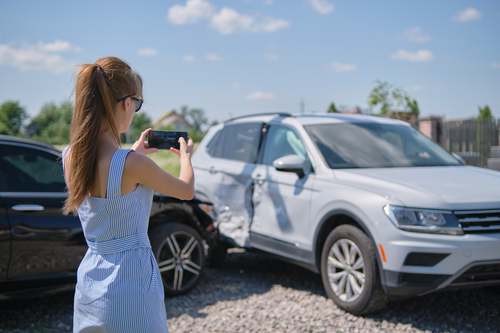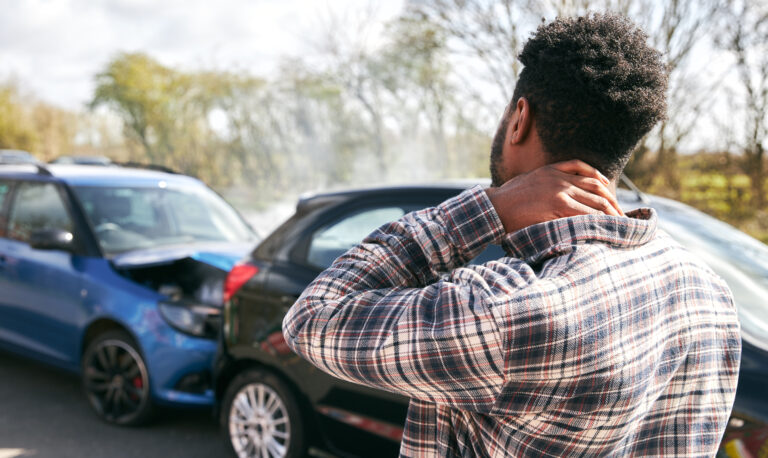It can be terrifying being in car accidents, even when you don’t suffer from injuries. There are physical and emotional tolls you have to endure, and you may not know what to do after your incident. However, if you do succumb to injury, our team at our Atlanta medical clinic can help you recover.
This blog will walk you through what steps to take after your car accident.
1. Ensure Safety
After a car accident, no matter how small, make sure you and others in the car are safe. Move the vehicles involved to a safe place if possible.
Check for Injuries
First things first, check for injuries. Check yourself and your passengers for visible injuries. If someone is hurt, call emergency services straight away. Quick medical attention can prevent complications and save lives.
Move to a Safe Place
If your car is drivable, move it to a safe location off the road. This stops further accidents and keeps you and other drivers safe. If your car is not drivable, stay inside with seatbelts on until help arrives.
Turn on Hazard Lights
Turn on your hazard lights to let other drivers know there’s been an accident. If you have warning triangles or flares, put them out around the scene. This extra visibility will prevent further accidents and keep the scene safe.
2. Call Authorities for a Police Report
No matter how small the accident, always call the police and ensure a police officer is present. A police report will provide a factual record of what happened which is essential for insurance claims and any legal issues. This will help document the facts and circumstances of the accident.
Answer Questions
When the police get there, cooperate with their investigation. Give a clear, factual account of what happened without adding any extra details. Don’t admit fault or speculate on what caused the accident. The officers will use your statement to make a report so make sure your information is accurate and consistent.
3. Swap Details
After you’ve ensured safety and called the authorities, swap details with the other driver and everyone involved in the accident. Get names, contact details, driver’s license numbers, vehicle details (make, model and license plate number) and insurance information. This will be useful for insurance claims and any disputes that may arise.
Witnesses
If there are witnesses to the accident, get their details too. Witness statements will provide a third party perspective on what happened, to support your version of events and clarify the sequence of events. Get their names, phone numbers and a brief statement of what they saw.
4. Document the Accident Scene
Document as much of the incident as you can.
Obtaining an accident report, created by a police officer, is crucial as it serves as an official document detailing the incident and is essential for both insurance claims and any legal proceedings that may arise from the accident.
Take Photos
Use your phone or a camera to take clear photos of the accident scene. Take photos of the damaged vehicles, their positions, any skid marks, road conditions, traffic signs and any other relevant details. These photos will be visual evidence to support your version of events and help with the insurance claims.
Notes
In addition to photos, take notes of the accident. Document the date, time and exact location of the accident. Write down everything you remember about what happened. Include weather conditions, road hazards and any other factors that may have contributed to the accident. This will be useful when you need to give information to the police, insurance companies and lawyers.
5. Be Careful What You Say
After an accident it’s crucial to be careful what you say. While you need to swap details with the other parties involved, don’t discuss the accident. Don’t admit fault or accuse the other party, as these statements can be used against you later. Keep conversations brief and to the point.
Additionally, avoid direct communication with the other driver’s insurance company. They may use pressure tactics and misleading strategies to minimize payouts, so it is advisable to consult with a lawyer to handle all interactions with them.
Tell the Truth
When you talk to the police and your insurance company, make sure your version of events is factual and consistent. Stick to the facts and don’t speculate or give opinions on what caused the accident. Clear communication will help create a record of the incident which is essential for any future claims or legal issues.
6. Notify Your Insurer
As soon as possible after the accident, contact your car insurance company to report the incident. Give them all the details you have including the information you gathered at the scene. Reporting it early will help process your claim quickly and ensure you meet any time limits in your policy.
Check Your Coverage
Talk to your insurance agent to understand how your policy applies to the accident. Find out what’s covered, how to make a claim and what documentation you need to provide. Knowing the details of your coverage will help you manage your expectations and ensure you do the right things to get paid.
7. See a Doctor for Medical Treatment
Regardless of how minor your injuries seem, seek medical treatment and get seen by a medical professional as soon as possible after the accident. Adrenaline can mask pain and symptoms of injuries that may not be immediately apparent. A proper medical check up will reveal any hidden injuries and prevent complications.
Medical Records
Keep a record of all medical visits and treatments. These will be important for any injury claims you may need to make. Follow all medical advice and attend follow up appointments. Full medical records will show the extent of your injuries and are essential for getting fair compensation.
8. Talk to an Experienced Car Accident Lawyer
If the accident involves serious injuries, property damage or disputes about who was at fault, talk to an experienced Georgia car accident lawyer. A lawyer will guide you through the legal process, protect your rights and make sure you do everything you need to do to build a strong case.
Look After Yourself
A lawyer can help you deal with the insurance companies and other parties involved in the accident. They can negotiate on your behalf to get you fair compensation for your injuries and damages. Legal representation is important in complex cases to protect your interests and get the best result.
9. Follow Up
Ongoing Medical Care
Follow all recommended medical treatments and follow up appointments. Ongoing care is key to a full recovery and will help document the extent and duration of your injuries. Follow your doctor’s advice and complete any prescribed rehabilitation or therapy.
Keep a Record
Keep a record of all expenses from the accident. This includes medical bills, repair costs, rental car fees and any lost wages from time off work. Full documentation of your expenses will support your claims and get you paid for all accident related costs.
Visit Our Clinic Today!
It’s crucial to know what steps to take after your car accident. You should not hesitate to seek immediate medical treatment, especially if you’ve been injured. If you’re hurt in a car crash, Georgia Spine and Orthopaedics has multiple services that cater to accident victims, such as a medical clinic, experienced chiropractors, and physical therapists.
Schedule an appointment with us today at 678-929-4494!






